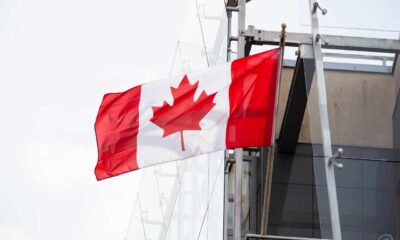Work in Canada
Canada Eases Rules for Marine Sector Jobs Under International Mobility Program

On July 18, 2025, Canada updated its immigration rules for foreign marine workers under the International Mobility Program (IMP). The change brings more clarity on when a work permit is required, and when it isn’t, especially under paragraph 186(s) of the Immigration and Refugee Protection Regulations.
This is great news for those in transportation jobs, especially in marine occupations who have long waited for clearer rules. The update also supports Canada’s growing demand for skilled international workers in sectors like shipping, retrofitting, and marine operations.
What’s New in the International Mobility Program for Marine Workers?
IRCC has introduced specific changes to guide foreign nationals in marine-related roles. Here’s a quick breakdown of what’s new:
| What’s Covered | Details |
| Program Updated | International Mobility Program (IMP) |
| Date of Update | July 18, 2025 |
| Key Regulation | Paragraph 186(s) of Immigration and Refugee Protection Regulations |
| Main Focus | Clarifying when a work permit is required or not needed |
| Special Case Added | Seaspan above-deck retrofit workers covered under Operational Bulletin 649 |
With these new guidelines, applicants and employers can better assess if a job requires a permit or qualifies under a permit exemption.
Why This Matters to International Marine Professionals?
Canada’s transportation sector, especially the marine industry, is a vital part of its economy. Foreign workers help fill labour gaps, especially in retrofitting and operations where local supply is short.
This update benefits:
- Marine workers looking to enter Canada temporarily
- Canadian shipping companies hiring globally
- Seaspan workers under retrofit programs
- Immigration consultants and HR teams managing marine hires
By simplifying the process and including real-life examples, Canada makes it easier for everyone to follow the rules correctly and faster.
Permit vs. Permit-Exempt: Real-World Examples Now Included
IRCC’s revised guidelines are not just technical, they include real examples. This helps workers and employers determine:
- When a permit is not needed (e.g., short-term marine repairs in Canadian waters)
- When a permit is required (e.g., jobs involving ongoing employment or contracts)
The aim is to eliminate confusion and reduce errors that could delay or reject an application. These clarifications are especially helpful for smaller employers or first-time applicants unfamiliar with IRCC processes.
Special Addition: Operational Bulletin 649
A key part of the update is the inclusion of Operational Bulletin 649, which now applies to above-deck Seaspan retrofit workers.
These workers play a role in upgrading Canadian vessels, and this move helps streamline their entry and work process. It also means better project timelines and fewer legal roadblocks for employers.
A Win for Canada’s Marine Workforce
The International Mobility Program update on July 18, 2025, brings more clarity for foreign marine workers looking to contribute to Canada’s growing transportation sector. With easier rules, real examples, and special instructions for Seaspan roles, the country continues to position itself as a welcoming destination for global talent.
If you’re in the marine sector and planning to work in Canada, this update could make your journey faster and smoother than ever before.























